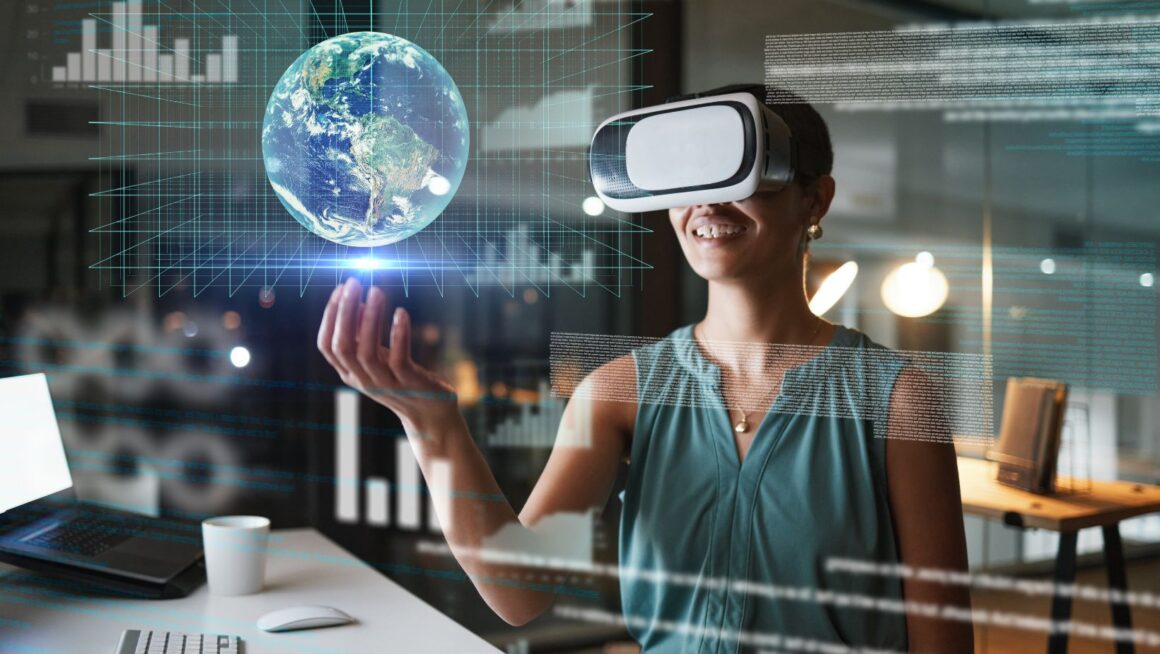Meta showed off their prototype AR glasses, called Orion, at their 2024 Connect event. CEO Mark Zuckerberg shared this exciting step forward in making glasses that can blend real life with digital features. Orion glasses are designed to be light (under 100 grams) and completely wireless, making them highly portable compared to existing AR headsets.
With these glasses, tiny projectors put digital pictures right in front of you, so you can chat, play, and multitask easily. They also have a cool wristband that reads hand signals, so you don’t need to press any buttons–just wave your hand.
While Meta has not set an official release date, it’s estimated that consumer-ready Orion glasses could arrive by 2027, with Meta continuing to refine aspects like battery life and fashion appeal. Orion is expected to sit in the price range of affordable laptops, around $1,000, due to its advanced capabilities, positioning it between existing smart glasses and higher-end VR headsets like Apple’s Vision Pro.
1. Healthcare
Healthcare providers could use Orion glasses to make patient care faster and more efficient. With AR glasses, doctors could access real-time patient data, like vital signs, medical history, or images, without turning away from the patient.
For example, a surgeon could view x-rays or MRIs directly in their field of view during a procedure, making it easier to follow complex treatment plans and reduce surgical errors.

With these glasses, doctors could get remote help. Specialists could see what local medical staff see and give advice right away. This would help healthcare workers in far-off places do their jobs better and make quicker decisions for patient care.
2. Education
Orion glasses could change how students learn by adding fun, interactive ways to study. With these glasses, students could watch historical events, or visit famous places virtually. For example, they could see digital models of artifacts and monuments in their classroom, making history come alive. This way of learning can make it easier for every student to understand and remember.
Teachers on the other hand could also use Orion glasses to make lessons interesting. They could add 3D visuals to show hard-to-understand topics, like space or math, more clearly, making learning memorable and bring ideas to life.
3. Gaming and Online Casinos
For video gamers, AR Orion glasses could turn the real world into a virtual playground. Think about this: you’re playing a game, but the characters aren’t just on a screen. They’re right there with you, in your room, in your backyard, wherever you are. That’s what these glasses can do.

For online casinos, Orion glasses could offer a virtual casino experience from anywhere. Players could feel like they’re in a real casino, interacting with live dealers and other players while staying at home. This could make top online casinos more engaging plus realistic, which could attract new players and improve the experience for regulars.
Whether it’s poker, slot machines, or table games, Orion glasses could make online gaming feel even closer to the excitement of a physical casino.
In Summary
In the future, Meta’s Orion glasses will enable a lot of amazing things! Imagine being able to get help from experts while working on a project or attending a virtual concert as if you were right there. They could make online shopping feel like walking through a store, or even help with daily tasks like navigation while you’re walking around.
Whether it’s learning, playing, or connecting with others, Orion glasses are just the beginning. We’re only starting to see how these smart glasses could change the world, and there are so many more cool ideas we can look forward to.

